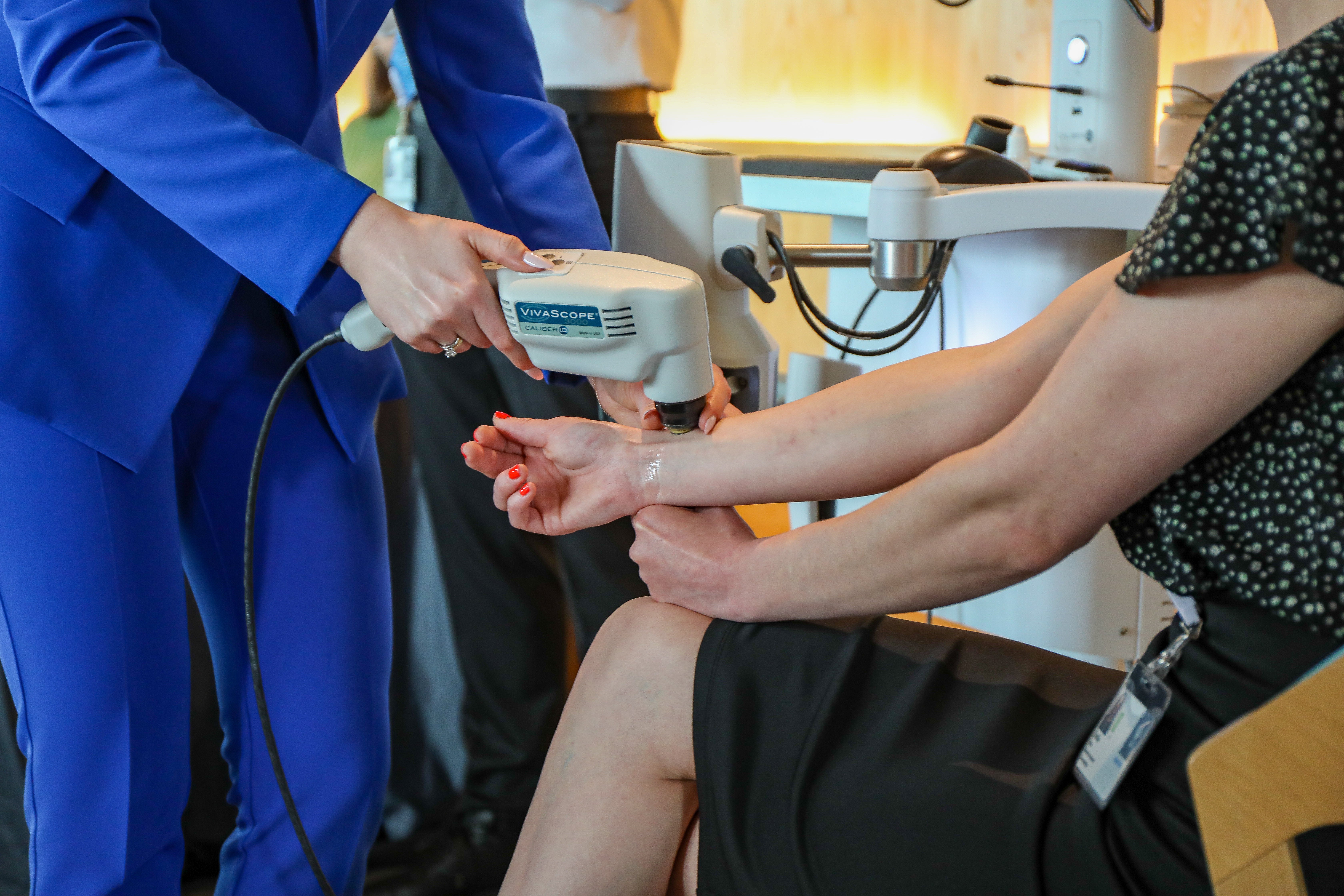Tiny spot under woman’s eye revealed as world’s smallest skin cancer
Measuring just 0.65 millimetres, the spot was described as ‘almost invisible to the human eye’
Your support helps us to tell the story
From reproductive rights to climate change to Big Tech, The Independent is on the ground when the story is developing. Whether it's investigating the financials of Elon Musk's pro-Trump PAC or producing our latest documentary, 'The A Word', which shines a light on the American women fighting for reproductive rights, we know how important it is to parse out the facts from the messaging.
At such a critical moment in US history, we need reporters on the ground. Your donation allows us to keep sending journalists to speak to both sides of the story.
The Independent is trusted by Americans across the entire political spectrum. And unlike many other quality news outlets, we choose not to lock Americans out of our reporting and analysis with paywalls. We believe quality journalism should be available to everyone, paid for by those who can afford it.
Your support makes all the difference.A team of dermatologists has identified the world’s smallest skin cancer under a woman’s eye.
Measuring just 0.65 millimetres, the tiny spot on Christy Staats’ cheek was described by the team at Oregon Health & Science University (OHSU) as “almost invisible to the human eye.”
Identified using state-of-the-art technology, the team was able to confirm that the spot was melanoma, the most dangerous type of skin cancer.
Using non-invasive techniques that allowed the team to look at Ms Staats’ skin without the need to cut into it, OHSU emphasised the importance of early detection.
On 1 May, a judge from the Guinness World Records awarded the team involved with a certificate recognising their life-saving discovery.

Ms Staats said had been aware of a red spot for a few years, but because of the pandemic, she delayed seeking medical help.
“During Covid, I started to think about my health a little more”, she said. “I have a magnifying mirror in my bathroom and noticed the spot I was worried about was way bigger and had a ‘leg’ on it. I set up an appointment to get it looked at.”
The appointment identified Ms Staats’ initial area of concern as a cherry angioma, a benign skin growth. But during the same evaluation, Professor Alexander Witkowski noticed another small spot on her cheek – the spot that would later be diagnosed as cancer.
“What our team accomplished together embodies my personal mission statement: ‘Catch the inevitable, early,’” Prof Witkowski said of the discovery.
Ms Staats has since emphasised the importance of being able to access treatment, stating that she was in the “right place at the right time … with the right technology”.
“If they can find mine when it’s so early, it is a no-brainer that this technology can help other people”, she added. “It’s an important reminder that you can’t get lazy with your skin. You have to stay on top of it and get new things checked out.”
To mark Melanoma and Skin Cancer Awareness Month in May, the team has launched Start Seeing Melanoma, a public health campaign designed to raise awareness.

“With melanoma, your eyes really can be your best tool. A mole or spot on your skin that is changing in appearance — size, shape, colouration — is a key indicator for melanoma,” Sancy Leachman, chair of the Department of Dermatology in the OHSU School of Medicine, said.
Melanoma is a type of skin cancer that can spread to other areas of the body. According to OHSU, it accounts for 1 per cent of skin cancer cases but causes the largest number of skin cancer deaths.
In the UK, 2,341 people died from melanoma between 2017 and 2019.






Join our commenting forum
Join thought-provoking conversations, follow other Independent readers and see their replies
Comments